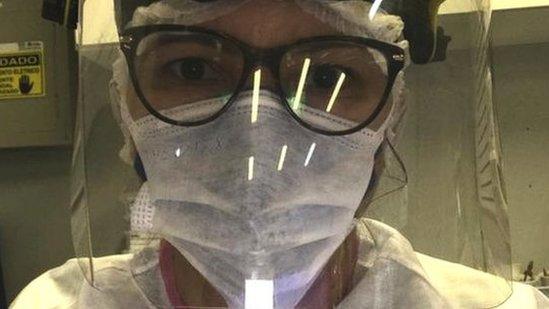Coronavirus: Brazil's death toll hits 20,000
- Published
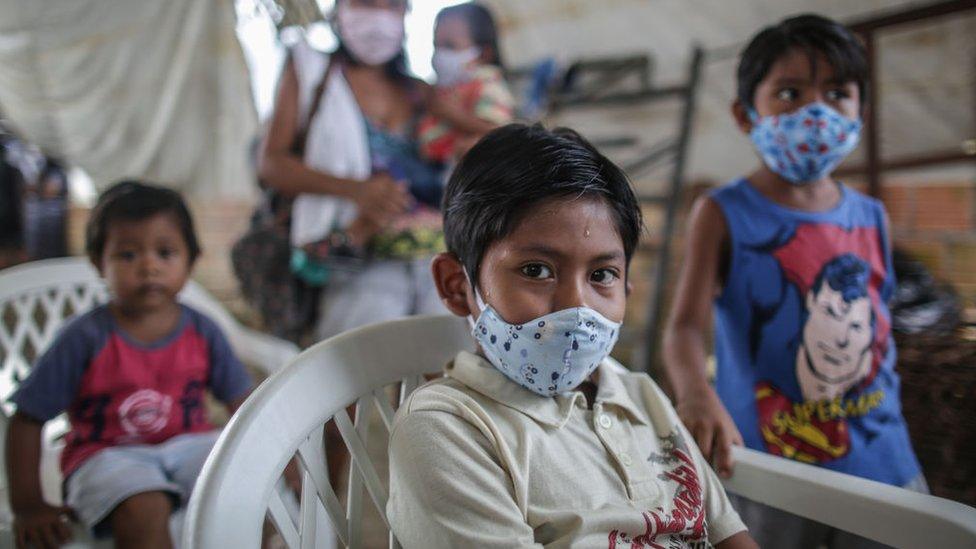
Experts say insufficient testing might mean that the true figure in Brazil could be far greater
Brazil has become the sixth country in the world to report more than 20,000 deaths from the coronavirus amid warnings the outbreak has not yet reached its peak.
More than 310,000 infections have been confirmed, the third-highest number worldwide after the US and Russia.
Experts say insufficient testing might mean that the true figure in Brazil could be far greater.
President Jair Bolsonaro has repeatedly dismissed the risks posed by the virus.
On Thursday, the country's far-right leader continued his calls to ease lockdown measures imposed by state governors and mayors to revive a flagging economy.
His attitude towards public health expert advice on Covid-19 has led two health ministers to resign from their posts in the past month.
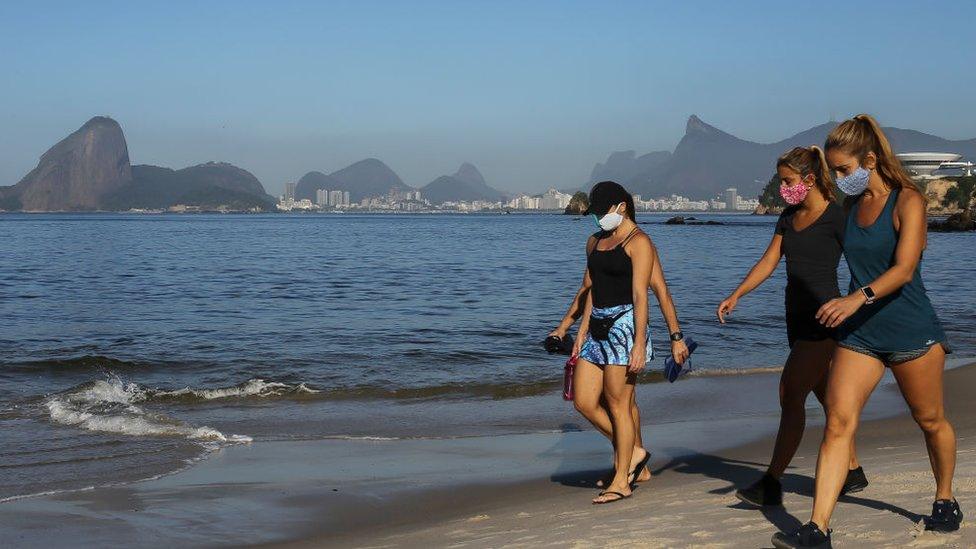
The first confirmed case in Brazil was recorded on 26 February
What is the situation across Brazil?
The number of deaths in Brazil is doubling roughly every two weeks, compared to about every two months in the UK, four months in France, and five months in Italy.
On Thursday, interim Health Minister Eduardo Pazuello said that while the level of infection had decreased in certain areas in capital cities, its spread across the rest of the country was "inevitable."
The virus has already spread widely in deprived areas and amongst the country's indigenous communities which are more vulnerable to disease.
In São Paulo, Brazil's largest city with about 12 million residents, a five-day holiday started on Wednesday in an effort to curb the spread of the virus.
There are concerns that people from the city will travel to the countryside or the coast instead of staying at home, further spreading the disease, BBC South America correspondent Katy Watson reports.
The authorities cannot make people turn around and they have allowed some traffic to get through, our correspondent adds.
Earlier this week Mayor Bruno Covas warned the health system could collapse in two weeks, and accused those who flouted lockdown rules of playing "Russian roulette" with people's lives.
The BBC's Katy Watson looks at how Bolsonaro has responded to the virus
How is President Bolsonaro handling the crisis?
Mr Bolsonaro has compared the virus to "a little flu" and promoted the use of the unproven drug chloroquine, despite warnings that it may be unsafe. This week, the health ministry updated its guidelines to allow the use of the drug even for mild cases.
But the president's focus on reducing economic disruption and lifting lockdown measures has been welcomed by supporters. He has also attended anti-lockdown rallies, ignoring recommendations of his own health authorities for social distancing.
Mr Bolsonaro and state governors appeared to put their differences aside on Thursday as they held a video conference on how to co-ordinate the response to the pandemic, with the president calling it "a great victory for the Brazilian people."
São Paulo Governor João Doria - who has previously described the president's views on tackling the disease as "Bolsonarovirus" - called for unity.
"Brazil needs to be united. If we're at war, we all face defeat. Let's go together in peace, Mr President, together for Brazil," he said.

THE R NUMBER: What it means and why it matters
GLOBAL SPREAD: Tracking the pandemic
RECOVERY: How long does it take to get better?
A SIMPLE GUIDE: What are the symptoms?

- Published23 September 2020
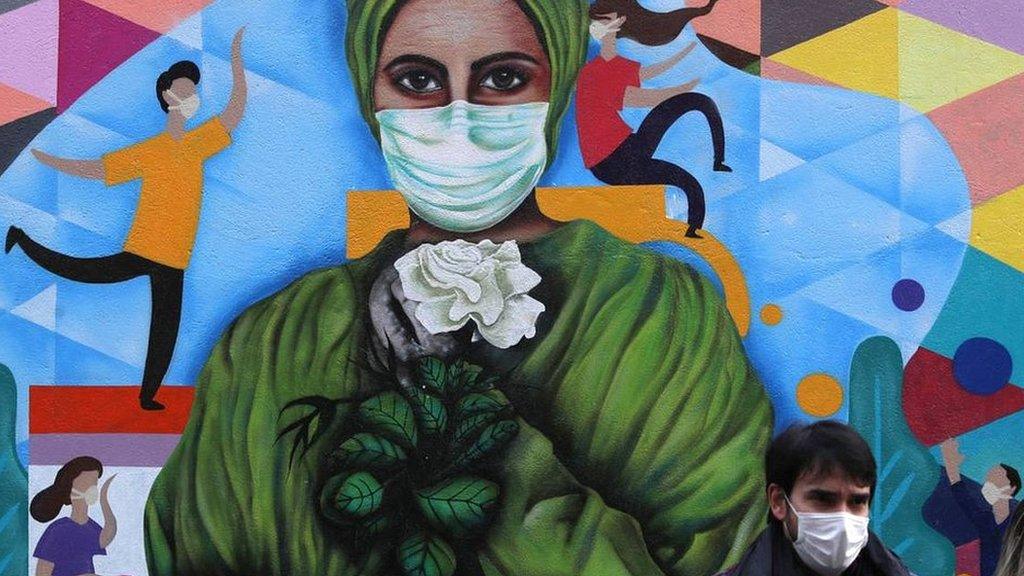
- Published16 April 2020
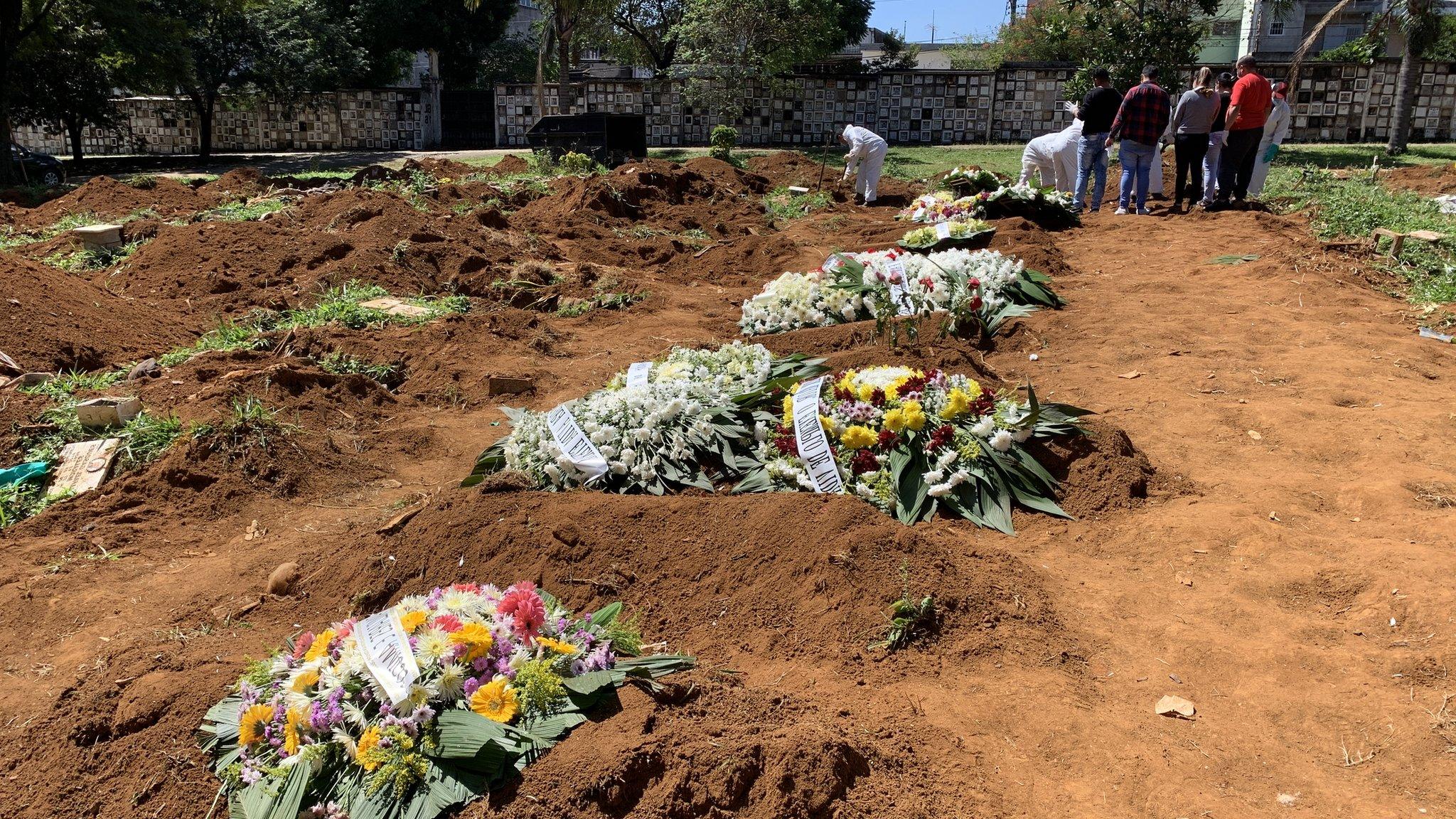
- Published20 May 2020
